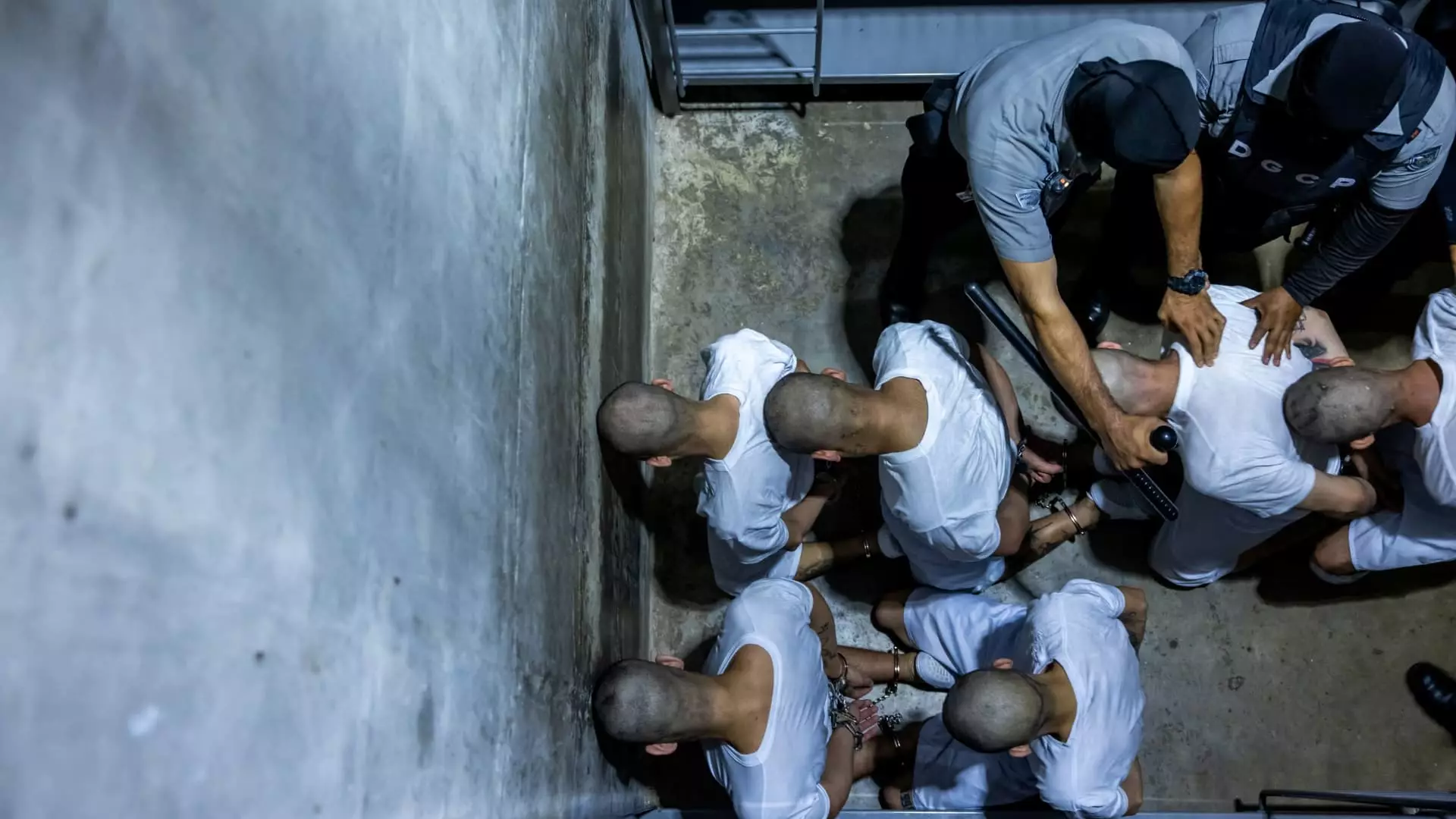In a startling deviation from basic judicial principles, the Trump administration has demonstrated a troubling pattern of recklessness that threatens the very fabric of American justice. The recent case of Kilmar Abrego Garcia, a Maryland man mistakenly deported to an infamous prison in El Salvador, exemplifies how the judiciary’s authority is being undermined by the executive’s blatant disregard for legal processes. Though Chief Justice John Roberts has temporarily paused the government’s deadline to deport him back to the U.S., it is troubling to witness how systemic failures have impacted an individual’s life so profoundly.
Abrego Garcia is not just an abstract figure lost in bureaucratic red tape; he is a human being, a potential victim of persecution. Officials in the Department of Homeland Security (DHS) apparently ignored a prior ruling issued by an immigration judge, which found credible evidence that he would face persecution if returned to El Salvador, a nation crippled by gang violence. To illustrate the gravity of the situation, consider this: the U.S. government has effectively thrown an innocent person into a perilous environment based on dubious claims. It raises questions not only about accountability but also about the very nature of our legal system.
Judicial Independence Under Attack
The response of the Justice Department reflects a troubling trend of minimizing judicial oversight in favor of expedient decision-making driven by political considerations. Solicitor General D. John Sauer’s hesitance to adhere to Judge Paula Xinis’s order demonstrates a blatant attempt to class judicial injunctions as mere annoyances to governmental prerogatives. This, in itself, is a dangerous path—one that risks embedding a culture of impunity within the administration. When an executive branch can merely sidestep judicial authority, the very tenets of democracy begin to erode.
The assertion that Judge Xinis’s injunction was “patently unlawful” embodies a dismissive attitude toward the judiciary’s checks and balances. It is essential to recognize that judges serve as crucial protectors against government overreach. While the executive may wield significant influence, it is not above the law. The judiciary exists to provide necessary checks, especially when the actions of the government pose risks to life, liberty, and individual rights. By reducing the value of judicial review to mere inconvenience, the administration is, in effect, diminishing the separation of powers that sustains our democracy.
The Role of Media and Public Perception
The media plays an instrumental role in shaping public perception regarding such contentious situations. Unfortunately, the portrayal of Abrego Garcia as a potential MS-13 gang member without substantial evidence does a disservice not only to him but to all immigrant communities. It perpetuates harmful stereotypes and fuels a toxic narrative that simplifies complex immigration discussions into binary judgments of good versus evil. The ramifications of this sensationalism extend far beyond the individual cases as they blanket communities with fear and suspicion.
Moreover, Abrego Garcia’s story highlights a deeper societal issue: the erosion of trust between immigrants and the legal system. Families like his—those navigating the treacherous waters of immigration—often do so at a significant emotional and financial cost. The constant specter of deportation and the lack of confidence in judicial protections create an environment ripe for exploitation. It is imperative that reforms are instituted to restore faith in protective legal processes for everyone, particularly the most vulnerable.
A Call for Compassionate Governance
In times of discord and uncertainty, it would serve society well to remember the values upon which it was founded. Compassion, justice, and humanity should reign supreme, even in contentious issues like immigration. The treatment of Kilmar Abrego Garcia encapsulates a failure of governance where human lives are reckoned as mere figures in a political game, devoid of empathy or reason.
This case serves as a clarion call for those in power to recognize their moral and ethical obligations towards all individuals, regardless of their background or legal status. It is not merely about legalities; it is about people—shaping lives and honoring dignity. A commitment to uphold the rule of law must be paired with a deep-seated respect for the humanity of every individual, especially when facing the brutality of systemic failures. The path forward must include restoring the balance of power while safeguarding the rights and lives of all who seek justice within our borders.


Leave a Reply